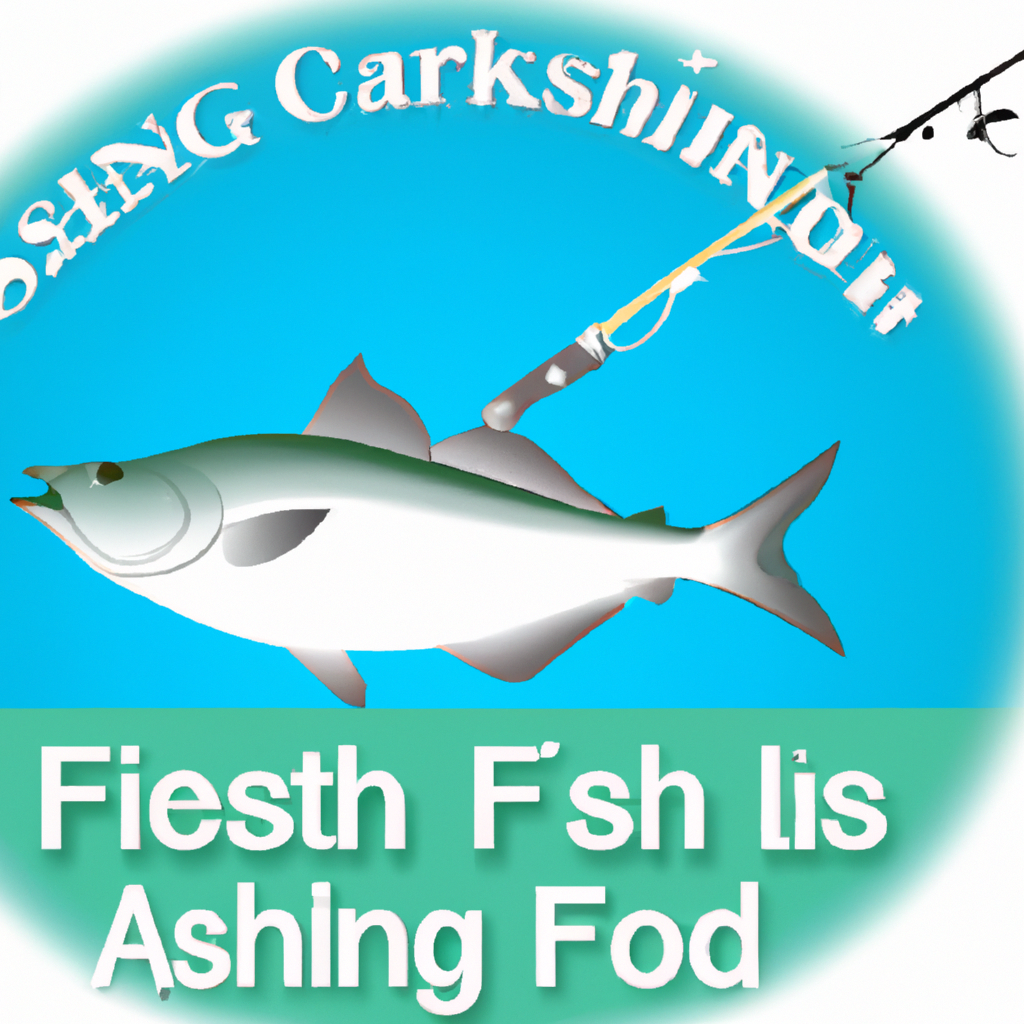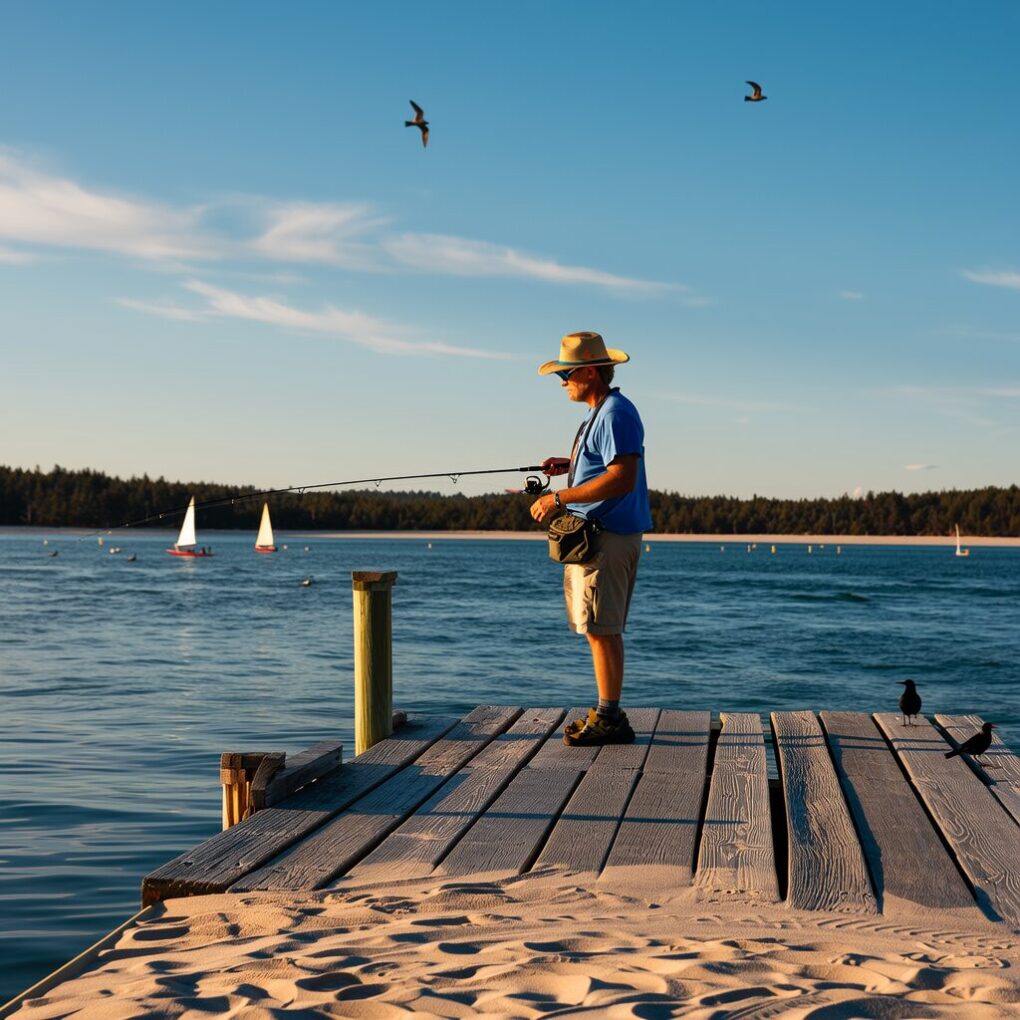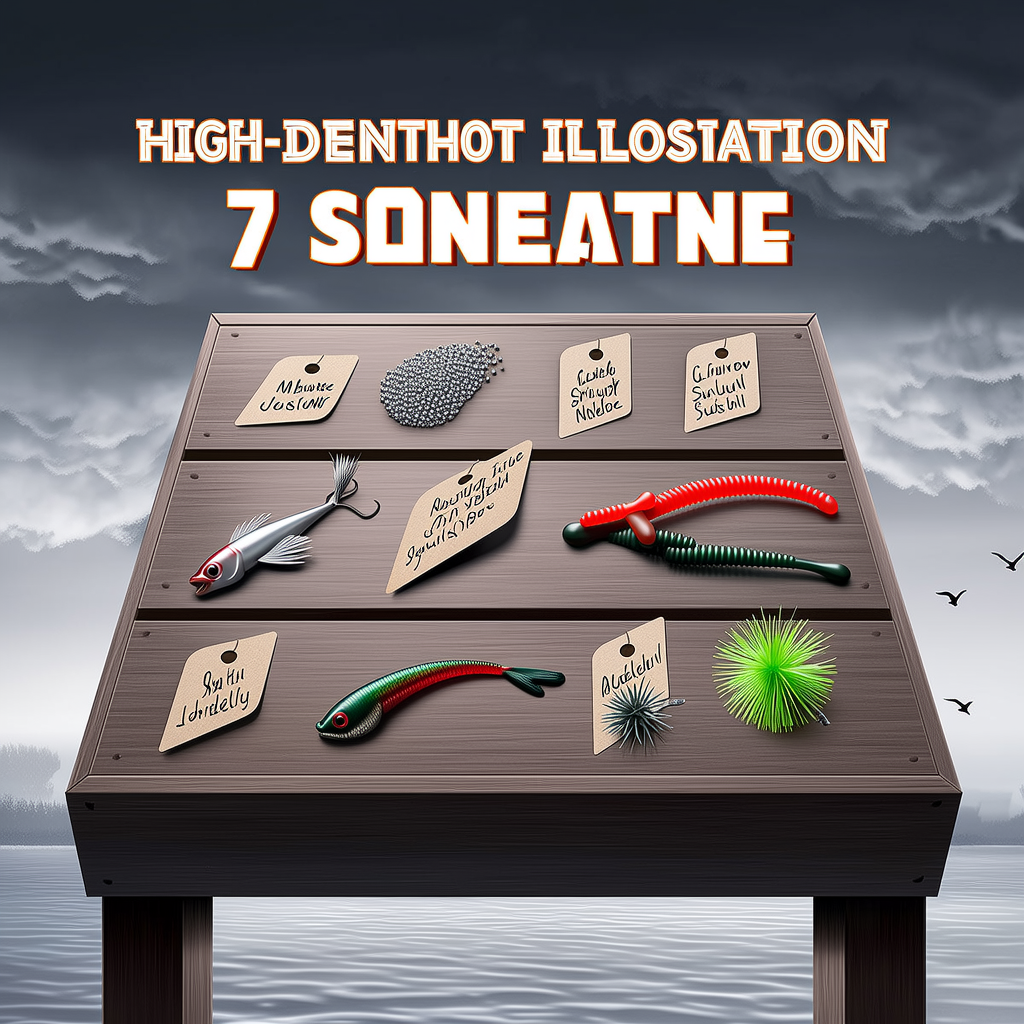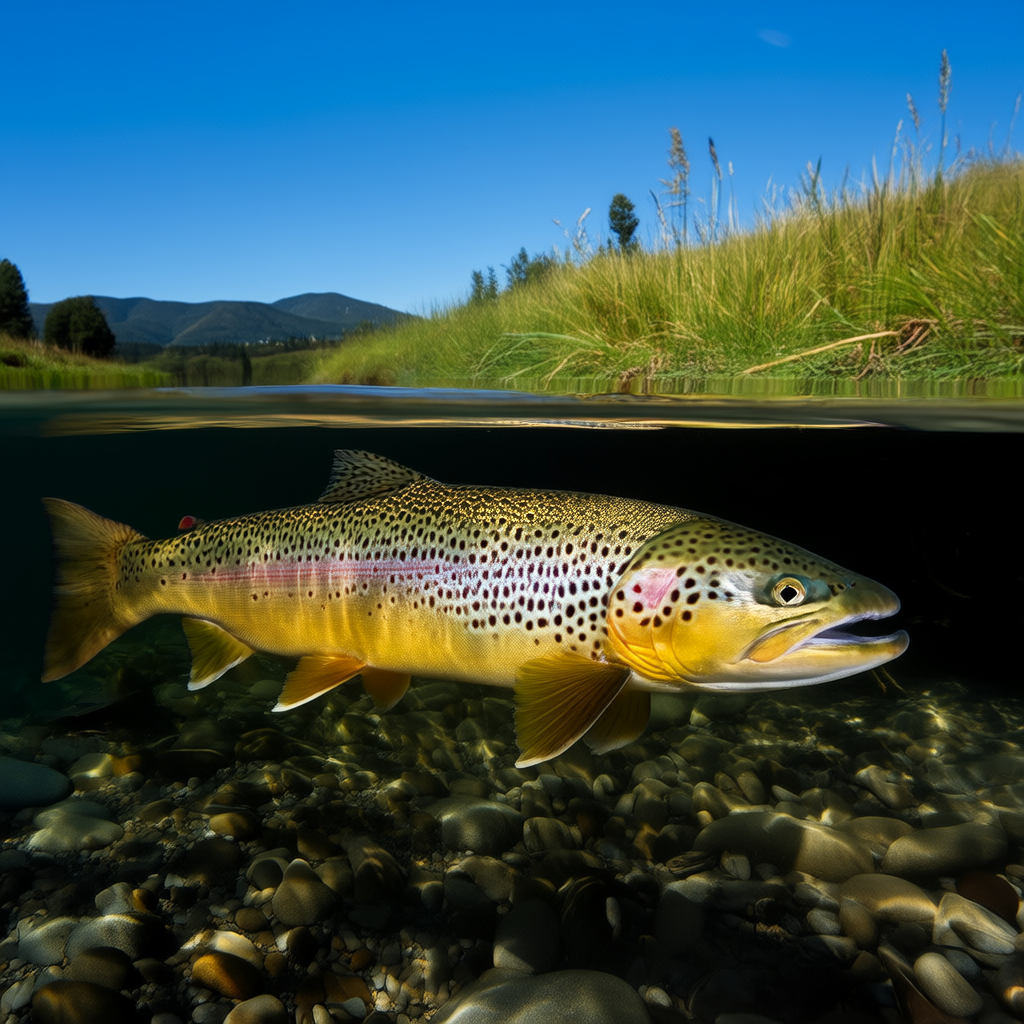Plan to go fishing in North Carolina? It is important to get a fishing permit before you cast a line into the pristine waters of North Carolina. A fishing license ensures you are fishing legally and also helps to conserve and manage the fish populations of the state. This article will cover the requirements for obtaining a North Carolina fishing license, the types of licenses that are available, as well as the rules and regulations.
Types of fishing licenses in North Carolina
North Carolina offers several different types of fishing licenses, depending on age, residency, and duration.
Resident Fishing License
You will need a resident’s fishing license if you live in North Carolina and intend to fish there. This license is only available to those who have lived in North Carolina for at least six months prior to purchasing it. The resident fishing licence can be purchased in different durations. These include annual, 10-day and lifetime options.
Non-Resident fishing license
Visitors from outside the state can also get a fishing permit in North Carolina. Non-resident fishing permits allow you to fish within the state waters for a specified period. The non-resident fishing license is available in a variety of durations, including annual, 10-day and lifetime.
Combination Licenses
North Carolina offers a combined license that allows fishing in both freshwater and seawater. These licenses offer a great option for those who want to experience the many fishing opportunities that North Carolina has to provide.
Sportsman’s License
The sportsman’s licence is ideal for avid anglers who want to fish, hunt and enjoy other outdoor pursuits in North Carolina. It combines the fishing and hunting privileges into one comprehensive package.
How to obtain a fishing license
The process of obtaining a fishing permit in North Carolina is simple and straightforward. You can apply for your license in a few different ways.
Online Shopping
Online application is the easiest and most convenient method to obtain a fishing license. The North Carolina Wildlife Resources Commission website (NCWRC), provides an online portal that allows you to complete the application in a few simple steps. Visit their website, choose the license type you need, enter the required information and pay. After your payment has been processed, you will be sent a digital version of your license which you can either print or save on your mobile device.
In Person
If you prefer to go the traditional route, you can apply for a fishing license at a local wildlife service agent. These agents include sporting goods stores, bait and tackle shops and many other retailers throughout the state. Visit the NCWRC’s website and use its store locator to find a location near you.
By Phone
You can also apply for a license to fish by phone. Call the North Carolina Wildlife Resources Commission to complete your application. This option is especially useful if you need help or have specific questions.
License Fees
North Carolina’s fishing license fees vary depending on factors like residency, duration and the type you are applying for. The fees collected through fishing licenses are used to manage and conserve the state’s fish population, ensuring sustainable fishing for future generations. It is important to know that some privileges may require a stamp or permit, such as fishing for trout in mountain waters.
Resident Fees
Residents of North Carolina are able to purchase an annual fishing permit for $25. The 10-day option is $9, and lifetime licenses are available from $315 up to $855 depending upon age.
Non-Resident Fees
Non-residents are able to purchase an annual fishing permit for $45. The 10-day option is $23, while lifetime options range between $330 and $1,000 depending on the age of the purchaser.
Trout fishing privileges are also available.
You will need to obtain a trout fishing privilege if you want to fish in mountain waters. This privilege costs $10 more for residents and $20 more for non-residents.
Fishing Regulations for North Carolina
North Carolina has fishing regulations that are designed to protect its natural resources and ensure the sustainability of the fish population. Before you go fishing, it is important to be familiar with the regulations to avoid any unintentional infractions. North Carolina fishing regulations include:
Size and Bag Limits
North Carolina has set size and bag restrictions for different fish species in order to maintain healthy populations. This also allows for sustainable fishing. These limits define the size of the fish you can keep and the number of fish per day. Be sure to check the current bag and size limits as they can vary depending on the location and species.
Closed Seasons for Fishing
To protect fish during critical periods of their life cycle, the state also enforces fishing season and closures. These seasons and closings may be applicable to specific species, regions, or times of the year. Before planning a fishing trip, it is important to check the current fishing regulations and be aware of any restrictions or closures.
Tackle and Equipment Restrictions
North Carolina has restrictions in place on the use certain fishing gears to protect sensitive habitats and promote sustainable fishing methods. In some areas, certain nets and traps are prohibited. Be sure to check any restrictions on gear before you head out to fish.
Special Fishing Areas
North Carolina has a number of special fishing areas including designated trout water, delayed harvest waters and special management zones. These areas have different regulations and offer unique fishing opportunities. If you plan to fish at one of these locations, be sure to read and follow any specific regulations that apply.
Conservation and Stewardship
North Carolina’s natural resources are a precious resource, and it is important that you prioritize conservation. Fishing licenses are essential to conservation efforts as they directly contribute to the management and preservation of fish populations and habitats.
It is important to release fish whenever possible when fishing in North Carolina. This is especially true for species that have size or bag limits, are protected, or are protected by law. By handling fish with care and returning to the water without harm, you can ensure their survival and maintain healthy populations for future anglers.
Clean Water is Important
Clean water is vital for the health and well-being of fish populations. If you are going to fish, be sure to properly dispose of your garbage and avoid any actions which may lead to water pollution. By keeping the water clear, you not only preserve the habitat, but also ensure the well-being of fish and other aquatic animals.
Respect for Wildlife
It is important to respect other wildlife in the area when fishing. Avoid disturbing nesting reptiles or birds. By being aware of your surroundings and minimizing the impact you have on the environment, it is possible to preserve the diverse wildlife of the state.
Fishing Resources and Organizations of North Carolina
North Carolina has a wide range of organizations and resources dedicated to the preservation of its aquatic eco-systems and fishing. These resources are great for both beginners and experienced anglers. They can provide you with valuable information, tips and opportunities to improve your fishing experience.
North Carolina Wildlife Resources Commission
The North Carolina Wildlife Resources Commission (NCWRC) is the primary agency in charge of conservation and management for the state’s fisheries and wildlife resources. Their website is a great resource for information on fishing regulations, licenses, and educational material. The NCWRC organizes events and workshop to promote responsible fishing and to provide support to anglers.
North Carolina Fish and Wildlife Conservation Trust
The North Carolina Fish and Wildlife Conservation Trust is a nonprofit organization that supports fish and wildlife conservation in the state. They work with different agencies and organizations to finance projects that improve fish and wildlife habitats. They also promote sustainable fishing techniques and provide educational opportunities for public.
Fishing clubs and associations
North Carolina has a number of fishing clubs and associations. These offer anglers the chance to meet like-minded people, participate in fishing competitions, and exchange knowledge and experiences. Joining a club can give you access to exclusive fishing spots, mentorship programs for beginners and a sense community among other anglers.
Fishing Charters and Guides
Hiring a fishing guide can be an excellent investment if you are new to the sport of fishing or wish to explore uncharted waters. Fishing guides can offer valuable insight, teach you different fishing techniques, and improve your chances of a catch. They will also make sure that you follow the rules and regulations, as well as help you find the best fishing spots around the state.
Conclusion
A fishing license is required in North Carolina. It’s not just a legal requirement, but it also helps to conserve and manage the fish populations of the state. You can ensure the sustainability of fishing on the North Carolina waters by following the rules, regulations, and practicing catch-and release. Grab your fishing gear and your license to embark on a fishing adventure that you will never forget in the Tar Heel State.




